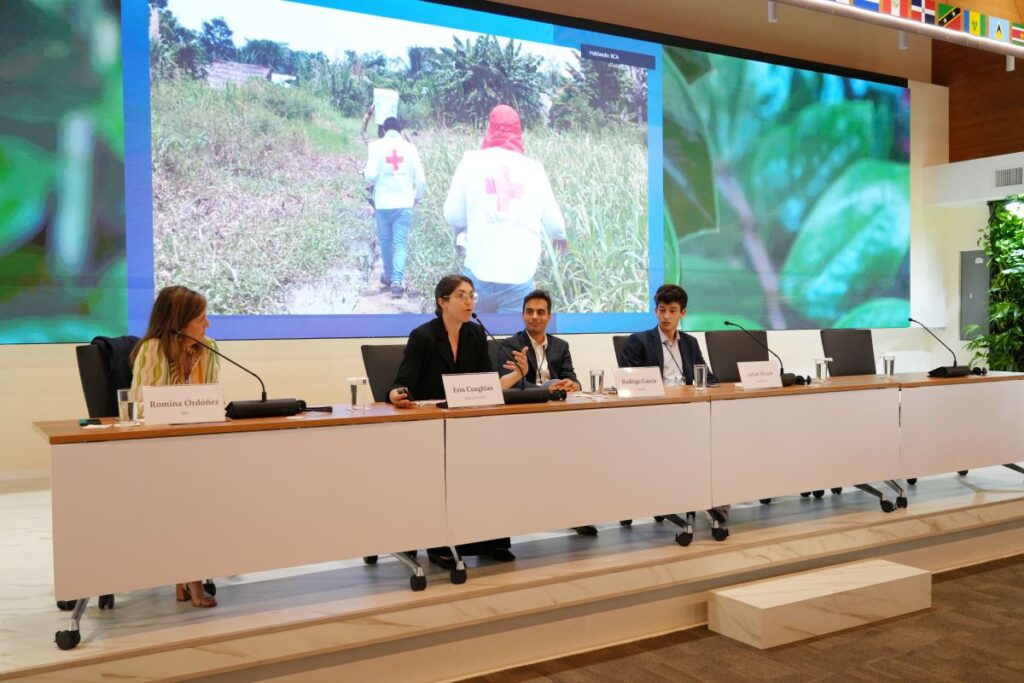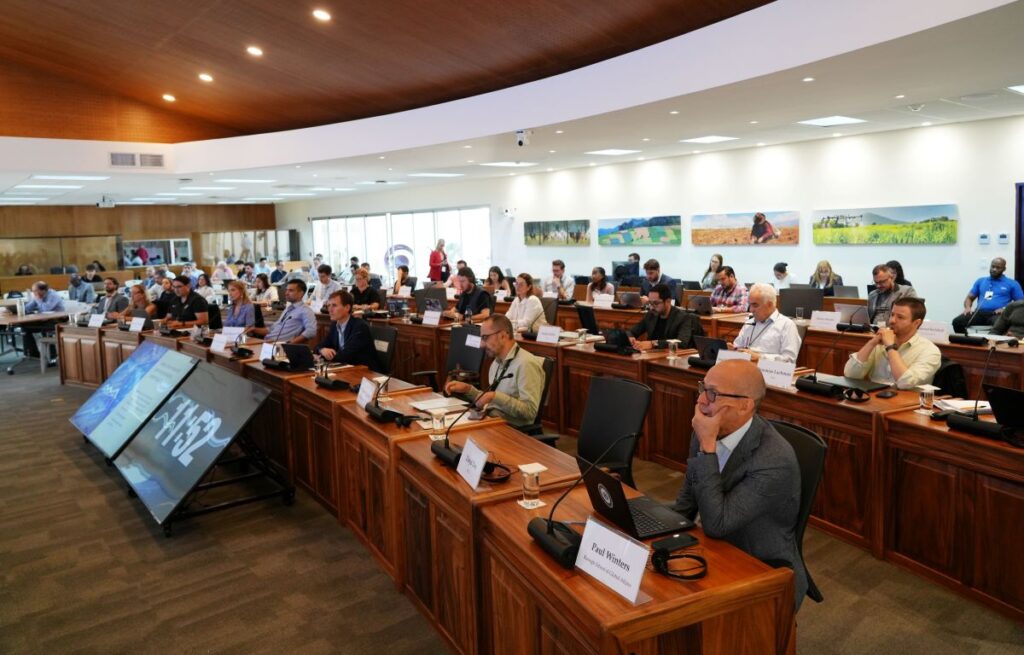
San José, 25 September 2025 (IICA). Key representatives of the ecosystem for digital innovation in agriculture in the Americas discussed and shared experiences on the latest developments in climate forecasting. They agreed that the situation and needs of farmers should be the first priority in developing technological transformations in productive activities.
At Digital Agriculture Week, which is being held at the Headquarters of the Inter-American Institute for Cooperation on Agriculture (IICA), public and private sector stakeholders examined how artificial intelligence and other advances are transforming the generation of climate information, and explored ways of improving farmers’ access to it.
DA Week is the principal event in the region where stakeholders come together to discuss digital innovations applied to agriculture. Organized by IICA and its strategic partners—the IDB, the CAF, Bayer, PROCISUR, the University of Córdoba and AWS—it features an intensive, four-day program of activities that brings together a selection of agtechs, policymakers, representatives of producer organizations, investment funds, accelerators, national research and development institutes, international organizations, academia and agricultural and technology companies.
Some 21 agtechs from 15 countries in the Americas are participating in the event. These startups, which have solutions that are already available in the marketplace, were selected by means of a competitive process that generated 142 applications from 23 countries. Agtechs selected for the three previous editions of DA Week are also taking part.
“The climate impacts critical decisions that farmers make, such as planting and harvesting times, and input use. Accurate forecasts are a very important tool, and artificial intelligence is transforming this field, like so many others. The potential exists to generate information more quickly and cheaply; the challenge lies in disseminating it efficiently among all producers”, said Romina Ordóñez, Senior Specialist in Rural Development at the Inter-American Development Bank (IDB), who kicked off the discussion on digital technologies for the development and distribution of climate services.
Erin Coughlan de Pérez, a professor and researcher at Tufts University, referred to the “quiet revolution” that climate forecasting has undergone in recent decades. “For centuries, humans wanted to predict the future, and today we can do it. Artificial intelligence is now enabling us to improve forecasts enormously… we can produce them faster and they are more accurate”, she said.
However, Coughlan de Pérez warned that the world’s 500 million smallholders still do not have access to climate forecasts. “Being able to predict the future is a miracle”, she added, “but it isn’t enough. We must invest to ensure that people receive forecasts, that they are relevant and usable, and that farmers know what to do and have the means to do it when the forecast reaches them”.
Walter Baethgen, Senior Research Scientist at Columbia University’s Climate School, explained that the development of climate services is a process that includes generating climate information, translating it into plain language, and then transferring it for use at the farmer and public policy levels.
“This process isn’t working very well today. One of the lessons we’ve learned is that the end recipient must be involved from the beginning of the process, because the biggest challenge isn’t generating the information, but rather translating and transferring it. The typical problem in developing countries is the lack of information: if there’s no data about the past, climate information can’t be properly analyzed and compared,” he explained.
Baethgen urged against placing undue expectations on the role of artificial intelligence: “New technologies offer us many opportunities, but we need to continue working more with traditional intelligence in analysis and comparison. We also need to invest in emotional intelligence to understand why producers make the decisions they do”.
CGIAR researcher Emmanuel Zapata-Caldas shared his experience developing agroclimatic information bulletins in Guatemala, and urged his counterparts to focus not only on technical users, but primarily on farmers. “One of our main findings during the participatory research process is that it’s necessary to align expectations with the actual situation of the communities and recognize traditional knowledge. Today we know that the bulletins generated by agroclimatic technical committees must be complemented with community bulletins for farmers that are easy to access and read.”
Bridging the gap between developers and users
In the panel on the digitalization of the recording and managing of field data, Ignacio Ciampitti of Purdue University spoke about the current status and challenges of digitalization in agriculture, which entails the use of technologies such as sensors, satellites, drones and data management platforms. He explained that, while the adoption of digital tools has increased, a disconnect continues to exist between developers and end users, especially regarding the perception and usefulness these technologies, and how easy it is for producers to use them.
Ciampitti emphasized that the success of digital transformation depends on aligning technological solutions with farmers’ operational conditions and capabilities, prioritizing simplicity and practicality: “The challenge lies not just in innovating, but in designing solutions that respond to the real priorities on the ground. Technology must be built from the user’s perspective”.
Fernando Herrera Poch, a member of the University of Córdoba’s Department of Artificial Intelligence, discussed the use of virtual assistants based on artificial intelligence as tools to improve the recording and management of field data in agriculture.
“Virtual assistants”, he observed, “do not replace farmers or technicians, but rather facilitate the recording of quality field data, integrating it into management systems and transforming it into useful knowledge. Artificial intelligence must serve natural intelligence, helping to build more efficient, sustainable, and people-centered agriculture”.

More information:
Institutional Communication Division.
comunicacion.institucional@iica.int











